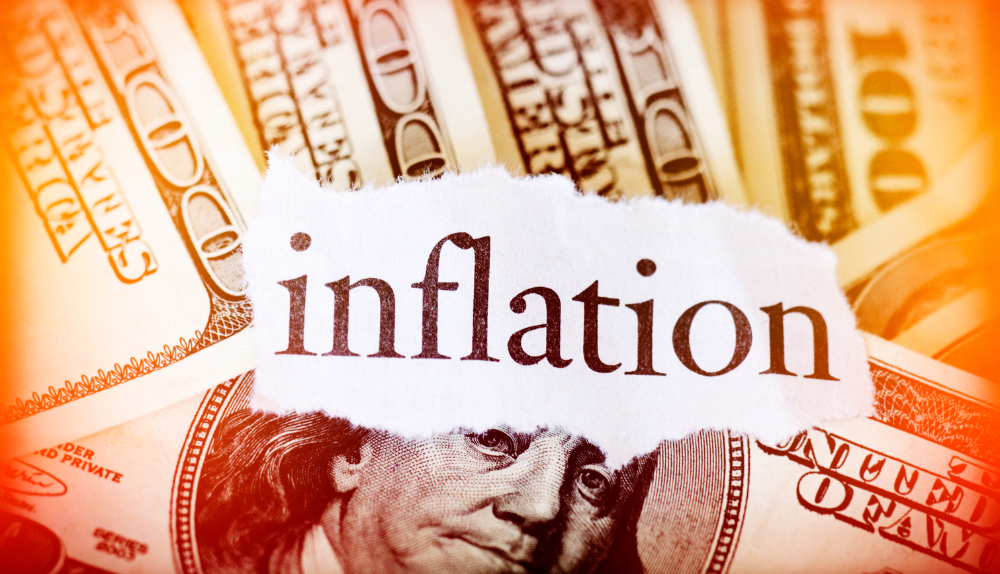How Does Inflation Affect M&A Deal Value?

An Update On Broad M&A Market Outlook For 2023
May 5, 2023
Mergers and Acquisitions 101: Must Know For Small Business Owners
May 8, 2023Mergers and acquisitions (M&A) involve the combination of two companies into a single entity. The value of an M&A deal depends on several factors related to the target company, including its revenue, profitability, assets, growth potential, and market share. However, inflation also plays an important role in influencing M&A valuations and the final prices that acquirers are willing to pay. In this article, we will learn how inflation affect M&A deal value and what are the implications.
During periods of high inflation, when the overall costs of goods and services are rising rapidly, M&A deal values typically increase as well. Companies generate higher revenues and profits simply due to rising prices, which improves their growth outlook and strengthens their negotiating position. Acquirers, in turn, pay higher premiums to gain control of a fast-growing target company. High inflation also usually means higher interest rates, increasing the financing costs for deals and warranting a higher total value. And the loss of purchasing power during high inflation motivates buyers to pay more before values decline further.
In contrast, M&A deal values remain relatively steady or see a more modest increase during periods of low and stable inflation. When prices are rising slowly or remaining flat, companies cannot easily boost their revenues and profits, limiting upward pressure on growth and valuations. Interest rates remain low, containing financing costs. And more stable currency values provide more anchor to actual fundamentals rather than macroeconomic worries.
How Does Inflation Affect M&A Deal Value
Impact of high inflation on M&A deal values

High inflation creates upward pressure on M&A deal values through several channels. When inflation is rapid and accelerating, the overall cost of goods and services goes up significantly. Companies have to increase their prices merely to maintain the same profit margins, resulting in higher revenues. With more revenue and higher profits, companies appear faster-growing and more valuable, allowing them to demand a bigger premium during acquisition negotiations.
High inflation also usually means the central bank will raise interest rates to try and curb rising prices. Since acquirers often use substantial debt to finance M&A deals, the total enterprise value paid goes up to offset the higher borrowing costs. Interest expenses represent an ongoing charge against profits, so acquirers need to pay more for a target company to ensure the combined entity can still generate enough earnings to cover its increased costs.
Rising inflation also causes the value of money to decline over time. During periods of high inflation, the purchasing power of currencies reduces as prices accelerate upwards. Acquirers feel compelled to complete deals quickly before the value of their money loses more ground. At the same time, target companies become more willing to accept a higher price today rather than see the value of their shares deteriorate further in the future. This dynamic contributes to upward pressure on M&A valuations.
Impact of low and stable inflation on M&A Deal values

In contrast, M&A deal values remain steady or see a more modest increase in an environment of low, stable inflation. When prices are rising slowly or remaining flat, companies find it difficult to substantially boost their revenues and profits, limiting any upward pressure on growth and valuations. Interest rates remain low to keep money inexpensive and accessible, containing financing costs. And a more stable currency means M&A values can focus on fundamentals rather than macroeconomic worries.
With input prices and costs of goods remaining flat or increasing at a gradual pace, companies cannot justify bigger price hikes and revenue/profit spikes simply due to inflation. Revenues and profits may grow at a steady rate due to volume or market share gains, but not exponentially due to cost-push pressures. As a result, valuations also rise at a moderate, rather than accelerated, pace. Acquirers will pay higher prices to gain control of a solid, stable business, but not a premium justified by rapid inflation-fueled growth.
Central banks keep interest rates low in a low-inflation environment to encourage lending, investing and economic activity. This means the cost of debt financing M&A deals remains affordable and manageable. While interest expenses still represent an ongoing cost, they do not reach a level requiring substantially higher M&A valuations to cover charges. Deal values may increase to account for the time value of money, but not due to worryingly high borrowing costs.
Finally, a stable currency loses little value over time, allowing M&A negotiations to focus on fundamentals rather than inflation hedging. The future value of cash flows and assets remains reasonably predictable, anchoring valuations to real business performance rather than macroeconomic angst. Neither buyers nor sellers feel pressure to transact “before it’s too late,” keeping values grounded.
Conclusion

In conclusion, while M&A deal values primarily depend on the underlying characteristics and performance of target companies, inflation does significantly influence the final prices that acquirers pay. The level and stability of inflation, in particular, determine whether M&A deal values will rise quickly, remain steady, or increase modestly over time.
During periods of high inflation, costs rise rapidly, pushing companies to increase prices and motivating them to demand higher premiums and valuations. Interest rates go up to restrain inflation, driving financing costs higher and requiring bigger deal values to offset charges. And currency values decline, spurring buyers and sellers to transact at bigger prices before they lose more purchasing power. These effects combine to create upward pressure on M&A values.




